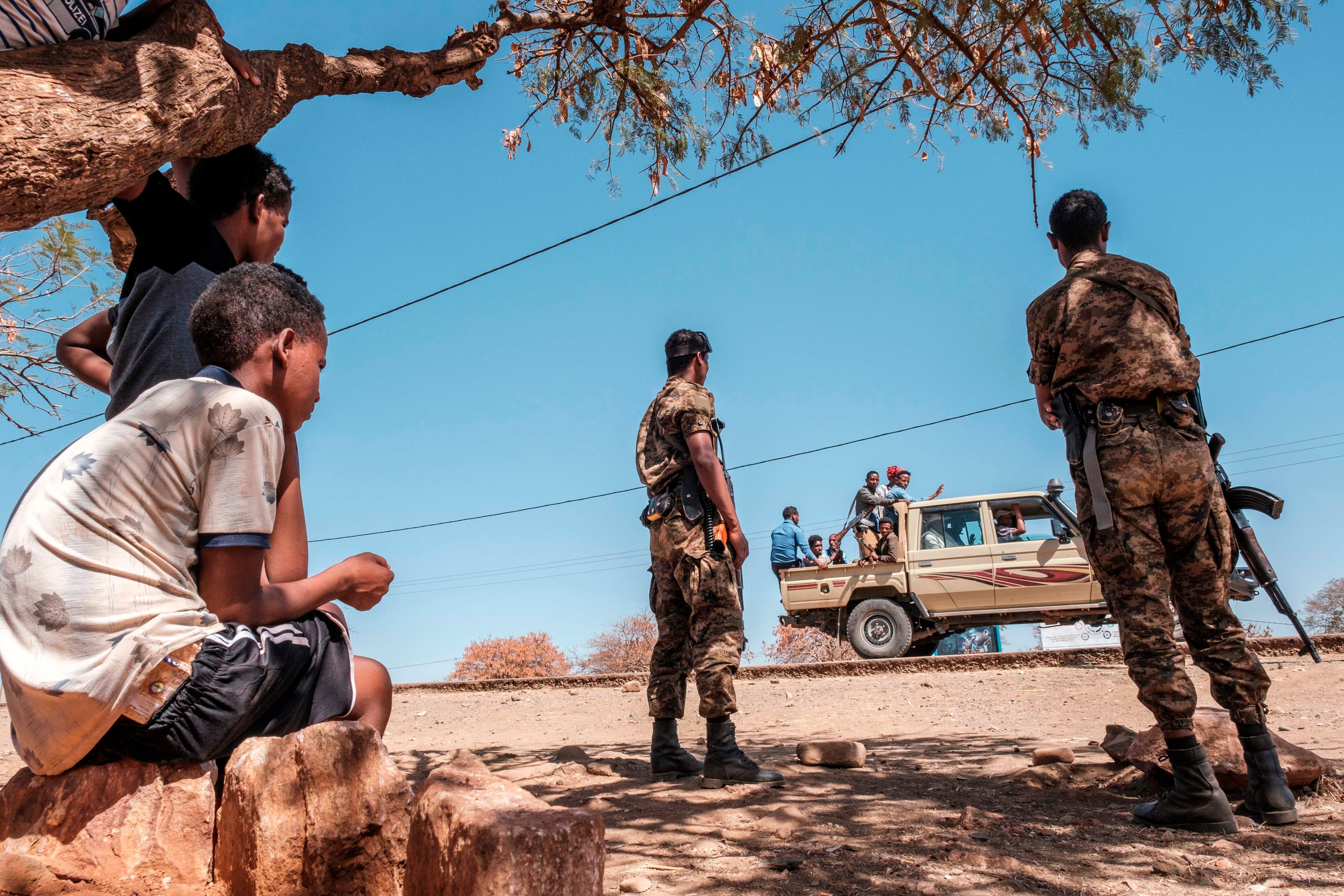Ethiopia says Eritrea has agreed to withdraw its forces from Tigray
UN says it has verified ‘serious violations and abuses’ committed by Eritrean troops

Your support helps us to tell the story
From reproductive rights to climate change to Big Tech, The Independent is on the ground when the story is developing. Whether it's investigating the financials of Elon Musk's pro-Trump PAC or producing our latest documentary, 'The A Word', which shines a light on the American women fighting for reproductive rights, we know how important it is to parse out the facts from the messaging.
At such a critical moment in US history, we need reporters on the ground. Your donation allows us to keep sending journalists to speak to both sides of the story.
The Independent is trusted by Americans across the entire political spectrum. And unlike many other quality news outlets, we choose not to lock Americans out of our reporting and analysis with paywalls. We believe quality journalism should be available to everyone, paid for by those who can afford it.
Your support makes all the difference.Ethiopia has said Eritrea will withdraw its troops from the country’s Tigray region, a few days after Addis Ababa finally admitted its neighbour has been supporting its months-long war there.
It had long been known that Eritrean soldiers were helping the Ethiopian government in its campaign against the region’s former ruling party, the Tigray People’s Liberation Front (TPLF).
There have been numerous reports accusing Eritreans of perpetrating atrocities against civilians in Tigray, including massacres, torture and gang rape.
Earlier this month, the UN said it had verified“reports of serious violations and abuses” carried out by Eritrean troops in central Tigray.
“Serious violations of international law, which may amount to war crimes and crimes against humanity, may have been committed,” it added.
Following a meeting with his Eritrean counterpart Isaias Afwerki, Ethiopian prime minister Abiy Ahmed said on Friday that Eritrea had agreed to remove its forces from the border of Tigray.
Read more:
However, soldiers in Eritrean uniforms have been seen in large towns across the province.
Antony Blinken, the US secretary of state, demanded earlier this month that Eritrean soldiers be replaced by security forces who would respect human rights.
He said there had been acts of “ethnic cleansing” in the region, an allegation rejected by Ethiopia.
Since the war began in November, thousands of people have been killed and hundreds of thousands of people have been forced to flee their homes.
One of the alleged massacres took place in Axum in late November, according to Amnesty International.
After speaking to 41 survivors, the rights group released a report in February detailing how Eritrean troops “systematically killed hundreds of unarmed civilians”. It said these killings could amount to crimes against humanity.
Sexual violence has also been widespread during the conflict, with more than 500 rape cases reported to just five clinics in Tigray.
The true number is thought to be much higher, owing to a lack of health facilities and the stigma around rape.
“Women say they have been raped by armed actors, they also told stories of gang rape, rape in front of family members and men being forced to rape their own family members under the threat of violence,” UN worker Wafaa Said said this week.
Mr Abiy acknowledged on Tuesday that rape has been committed during the war and vowed to punish those responsible.
Last week, the UN human rights chief Michelle Bachelet said her organisation will work with the Ethiopian Human Rights Commission (EHRC) on a joint investigation into atrocities in Tigray.
Additional reporting by Reuters
Join our commenting forum
Join thought-provoking conversations, follow other Independent readers and see their replies
Comments